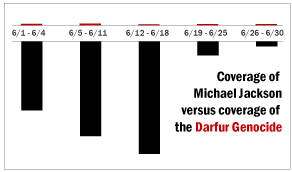There is a big debate raging over whether biofuels (biodiesel, ethanol) are sustainable. A paper published earlier this year by David Pimentel and Ted Patzek has the biofuels proponents on the defensive about the sustainability of the two most widely used types of biofuels in the US: corn-based ethanol and soy-based biodiesel (methylesther).
Ethanol production in the UnitedStates does not benefit the nation’s energy security, its agriculture, the economy, or the environment. Also,ethical questions are raised by diverting land and precious food into fuel and actually adding a net amount of pollution to the environment.
“Ethanol Production Using Corn, Switchgrass, and Wood; Biodiesel Production Using Soybean and Sunflower” David Pimentel and Tad W. Patzek, 2005
Of course, the National Corn Growers Association is a big fan of ethanol. And the National Biodiesel Board (NBB) – formerly known as the Soydiesel Board – vigorously rebukes (PDF) the Patzek/Pimentel study.
There are clearly some important scientific questions about this study, like the steam energy and electricity inputs, whether to include the food of the workers as an energy input, and the huge amount of lime they figure is needed to raise the crops. But the biggest problem, I see, is using corn and soy as the benchmark for biofuels production, as neither is a great feedstock for fuel. Even looking at the most favourable numbers, the 1:3 energy ratio for soy-biodiesel from a 1998 DoA/DoE study (PDF), that is still not good enough to fuel the world.
My big problem with the Patzek/Pimentel paper is that it tries to establish a benchmark using a poor-performance scenario. It’s like judging a city by visiting its worst neighborhood. And then journalists turn this study into headlines like this:
“Study says ethanol not worth the energy”
“Academic Study Discredits Ethanol, Biodiesel”
These headlines make blanket statements about renewable fuels, while the study only looked at particularly poorly designed production processes for specific types of fuels. Sort of like documenting the poor performance of an airplane made of lead and then concluding airplanes cannot work.
We need studies that help us figure out how we can make biofuels work, and soon. The Pimentel/Patzek paper did not get us any closer to a solution. In order for this country to “survive” Peak Oil, we need a massive investment in research on how to grow feedstock for biofuels that can get us up to 1:10 energy ratio, while minimizing land use and the environmental footprint. No, it does not look like soy or corn are the solution, but they are a stepping-stone. Solar and wind energy are not THE SOLUTION either. Solar-powered cars are a long way away, let alone solar tractor-trailers or lorries. Biofuels are a necessary part of the solution for sustainable, cleaner energy, just as solar, wind, and maybe even hydrogen. A truly relevant research question is not if biofuels are sustainable, it is how can we produce them sustainably.

 Last weekend Laura went to see the
Last weekend Laura went to see the 

